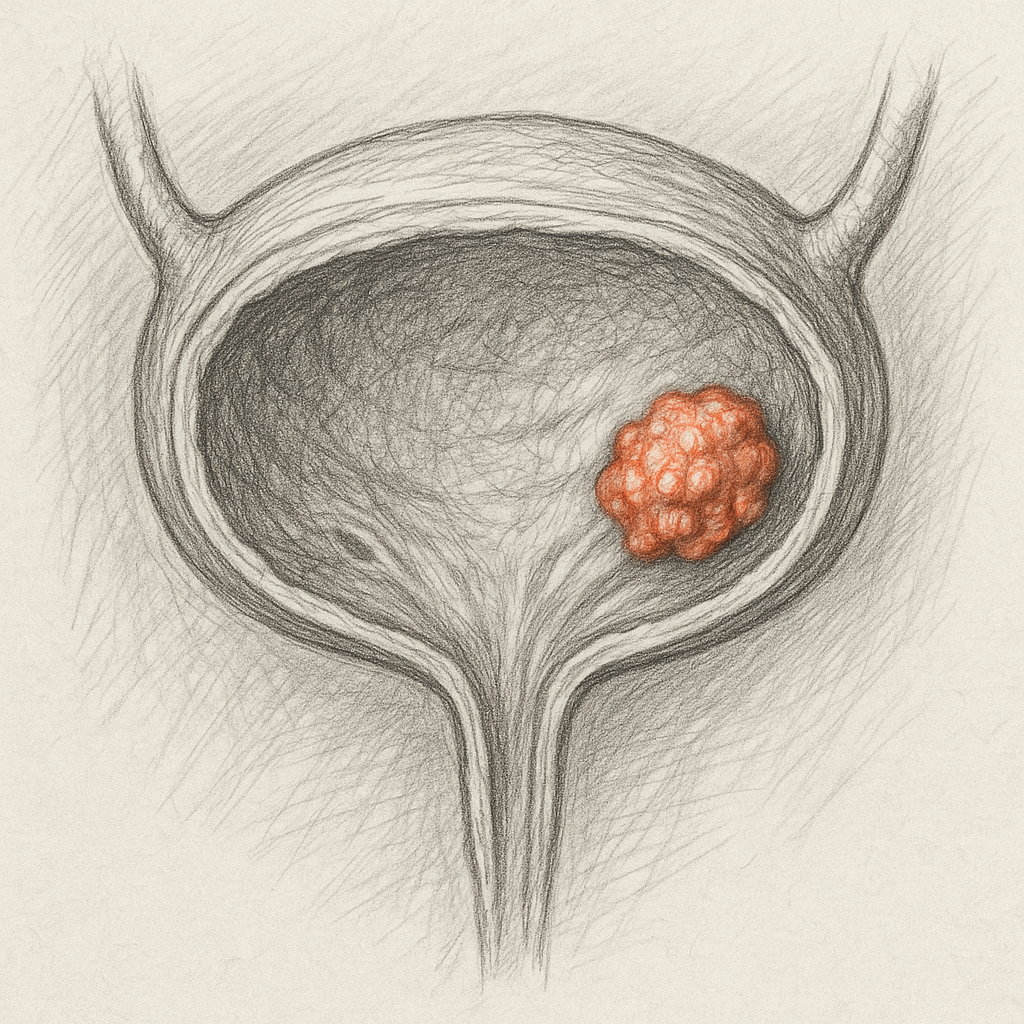

KEYTRUDA (pembrolizumab) plus Padcev (enfortumab vedotin-ejfv) represents the first perioperative systemic therapy to significantly improve survival outcomes in muscle-invasive bladder cancer (MIBC) patients ineligible for cisplatin-based chemotherapy. This combination, given before and after radical cystectomy, achieved statistically significant improvements in event-free survival, overall survival, and pathologic complete response rates compared to surgery alone.

Study Design & Population
Phase 3, open-label, randomized, multi-arm controlled trial (KEYNOTE-905/EV-303)
- Sample size: 595 patients randomized across three arms
- Population: MIBC patients ineligible for or declining cisplatin-based chemotherapy
- Primary comparison: Perioperative KEYTRUDA + Padcev (3 cycles pre-op, 6 cycles post-op + 8 cycles KEYTRUDA alone) versus surgery alone
- Control arms: Surgery alone and perioperative KEYTRUDA monotherapy
Key Findings
- Primary endpoint: Statistically significant improvement in event-free survival (EFS) with combination therapy
- Secondary endpoints: Significant improvements in overall survival (OS) and pathologic complete response (pCR) rate
- Safety profile: Consistent with known individual agent profiles; no new safety signals identified
- Treatment regimen: 3 neoadjuvant cycles followed by radical cystectomy, then 6 adjuvant combination cycles plus 8 KEYTRUDA monotherapy cycles
Clinical Implications
- Practice-changing: First positive Phase 3 study in cisplatin-ineligible MIBC population represents major treatment advance
- Standard of care: Establishes new treatment paradigm beyond surgery alone for this vulnerable patient population
- Regulatory impact: Companies plan worldwide regulatory submissions based on these compelling survival data
- Broader research: Builds on success of this combination in locally advanced/metastatic urothelial cancer settings
Limitations
- Data maturity: Secondary endpoint analyses for KEYTRUDA monotherapy arm still ongoing
- Specific numbers: Topline results announced without detailed efficacy data (awaiting medical meeting presentation)
- Population scope: Results specific to cisplatin-ineligible patients; broader MIBC applications under separate study
- Safety duration: Long-term safety profile of extended perioperative regimen requires continued monitoring



